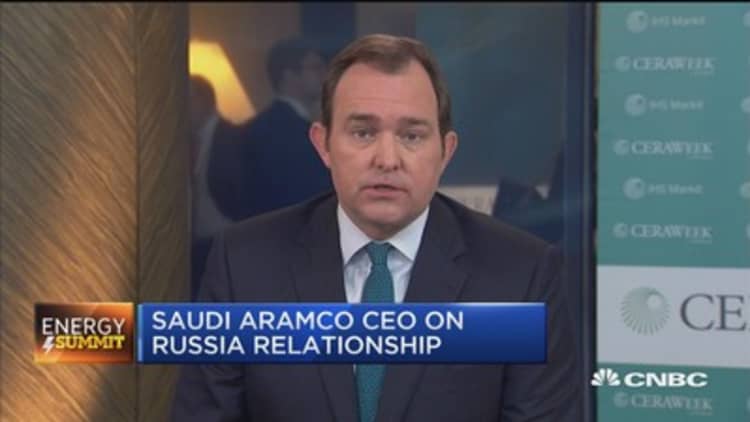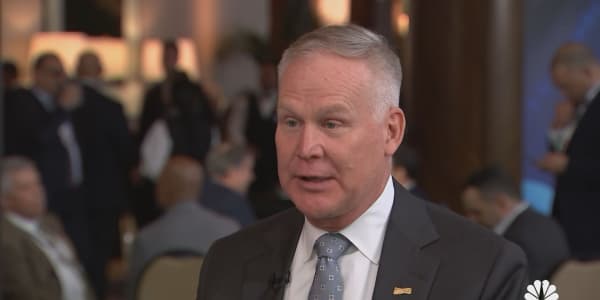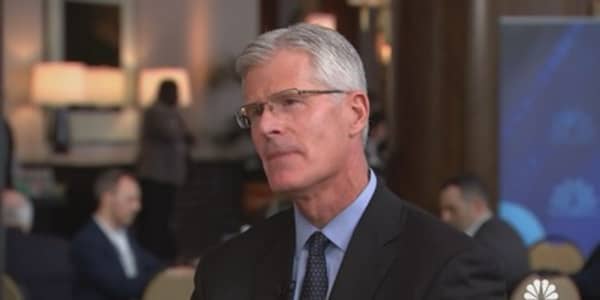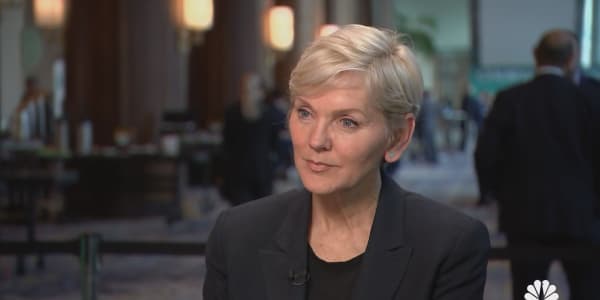
The world's growing appetite for oil will leave plenty of room for both Saudi Arabia and the United States to ratchet up production, Saudi Aramco CEO Amin Nasser said in a CNBC interview.
The two countries are seen jockeying for dominance in the global oil order, but the head of the world's largest energy company said their fates are actually closely aligned.
Nasser offered his assessment on Monday, the same day the International Energy Agency forecast that U.S. drillers will account for nearly all of the global growth in oil production in the coming years.
U.S. crude oil production has surged to a 47-year high above 10 million barrels a day, roughly matching Saudi Arabia's output. Meanwhile, the Saudis are limited their production as part of a deal among two dozen nations to shrink global crude stockpiles and balance the long oversupplied market.
Asked whether supplies from U.S. shale fields will start crowding out Saudi crude, Nasser noted that forecasts for oil demand see the world consuming an extra 1.4 million to 1.7 million barrels a day in coming years, fueled by strong economic growth.
"There is room to grow and shale will grow, especially with the market improving," Nasser told CNBC at IHS Markit's CERAWeek conference in Houston. "But as I said, the demand side is healthy."
Earlier in the day, International Energy Agency Executive Director Fatih Birol stressed during a CERAWeek press briefing that Saudi Arabia will remain the world's largest oil exporter even after the United States starts pumping well above the kingdom's output.
Nasser said he is not overly concerned by the growing amount of U.S. oil arriving in terminals in Asia, the world's demand center for oil, and Europe.
"Yes, the U.S. is exporting to other markets, but we are also exporting to the U.S. So my point is there is additional supply that is coming from the U.S. Some of it is going to certain markets in Asia and Europe. However ... the U.S. is a big market and we supply a significant amount of our crude to the U.S. as well," he said.
Aramco's growth stands to benefit Americans in several ways, according to Nasser.
The company's Motiva refinery in Port Arthur, Texas, is the largest fuel refining facility in the United States, and Aramco plans to expand employment there in coming years. Last year, Aramco announced it would invest $30 billion in the refinery through 2023 and create as many as 12,000 jobs.
Asked whether the tariffs President Donald Trump may impose on steel and aluminum imports would impact the project's economics, Nasser said the tariffs would have only a limited impact on its U.S. business. He said the company is proceeding with a feasibility study for the expansion.
U.S.-based oilfield service companies active in the kingdom, including Schlumberger, Halliburton and General Electric's Baker Hughes, are also seeing their fortunes rise as Saudi Arabia flourishes in the oil market, according to Nasser.
"Their business is expanding big time as we are adding more rigs and more services, as we are expanding our upstream business, especially in the gas sectors," he said.





